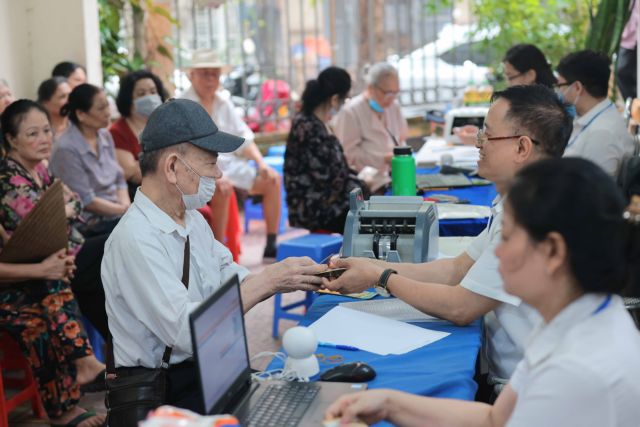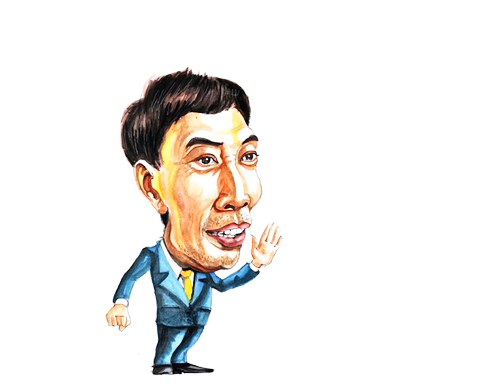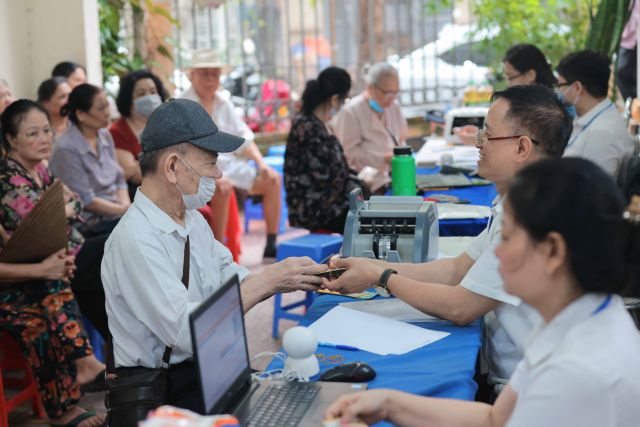 Economy
Economy

 |
*Võ Trí Thành
In last week's National Assembly session, a number of deputies proposed postponing the consideration and approval of the revised Social Insurance Law to the 8th meeting session. Lawmakers argued that this delay is necessary to ensure a thorough assessment of the impact of new wage policies on the social insurance regulations and to gather feedback from the vast number of affected workers.
The revised Social Insurance Law was initially expected to be passed in the current session to take effect by July 1, 2025. However, the proposed law has sparked significant debate. This legislation is crucial as it affects the lives of millions of workers, a matter of great public interest nationwide.
One of the major issues in the revised law is the provision allowing workers to withdraw their social insurance contributions in a lump sum.
According to a report by Việt Nam Social Insurance, by 2023, 39.25 per cent of the labour force was participating in social insurance, with 31.52 per cent covered by unemployment insurance. However, the number of people claiming benefits has been rising. By December 31, 2023, those taking a one-time social insurance payout increased by 20.58 per cent.
By April 2024, nearly 121,900 individuals had opted for a one-time social insurance payout, the highest number recorded to date. Projections indicate that if this trend continues, about 1.4 million people will claim a one-time payout in 2024.
In discussions about the draft law, many lawmakers stressed the need for optimal solutions to prevent millions of workers from leaving the social safety net and to ensure their financial security in old age.
Social insurance serves as a safety net for workers during employment and retirement. However, following the COVID-19 pandemic, there has been a surge in workers withdrawing their social insurance in lump sums. This trend poses a threat not only to the national social security system but also directly impacts the workers' long-term welfare.
Most of those opting for a one-time payout are young workers, aged between 20 and 40, who make up about 77.5 per cent of the total. This suggests that young workers are more concerned with immediate needs rather than long-term benefits, driven by financial pressures such as starting a family or investing in education.
The Ministry of Labour, Invalids and Social Affairs acknowledged that most workers in industrial zones have low incomes and limited savings. When they lose their jobs, they face immediate financial needs, such as family expenses or educational investments for their children.
The COVID-19 pandemic has exacerbated this situation, with many businesses struggling, particularly those in labour-intensive industries like tourism, hospitality, transportation, education and garment manufacturing. In 2020, approximately 60 per cent to 80 per cent of workers in these sectors temporarily lost their jobs, increasing the number of people claiming one-time social insurance payouts.
While these payouts can address immediate financial hardships, they have long-term repercussions. Workers who withdraw their social insurance funds in a lump sum receive less money than their contributions and forgo short-term benefits like sick leave or maternity leave, as well as long-term benefits like pensions and life-long health care benefits. This move effectively removes them from the social security system, leaving them vulnerable in old age and placing additional burdens on society and their families.
 |
| Elderly people receive their pensions at a payment point in Hai Bà Trưng District, Hà Nội. — VNA/VNS Photo |
The draft law proposes two options to address the rising trend of one-time payouts.
The first option allows workers who have contributed to social insurance before the revised law takes effect to withdraw their funds after 12 months of unemployment. After July 1, 2025, new workers would not be eligible for one-time withdrawals, except under specific conditions.
The second option permits workers to withdraw 50 per cent of their contributions to the retirement and survivorship fund, with the remaining amount preserved for future benefits. This policy applies to workers who have contributed for less than 20 years and have been out of the workforce for 12 months.
Each option has its advantages and disadvantages, raising concerns about fairness and the adequacy of funds to address immediate needs and ensure long-term security. Given the current economic challenges, many workers need funds to manage short-term difficulties. Restricting one-time withdrawals could provoke adverse reactions and force workers into difficult situations. On the other hand, allowing withdrawals may undermine long-term social security goals.
With a sizable vulnerable population, social security policies must be wide-ranging. This involves combining measures like preferential loans, job training and market development to support livelihoods and ensure flexibility, alongside social insurance.
Several deputies have suggested integrating both options to balance immediate needs and long-term benefits. They proposed applying the first option to workers with contributions before the law takes effect and the second option to new participants. Additionally, they called for clarity on the conditions for withdrawing 50 per cent of contributions.
With only 30-40 per cent of the labour force covered by mandatory insurance, it is crucial to consider developing private pension and social insurance funds to provide workers with more options and flexibility.
The Ministry of Finance said it is working with the labour ministry to evaluate voluntary supplementary pension regulations and develop a multi-tiered social insurance system to ensure sustainability and effectiveness.
Under Decree 88/2016/NĐ-CP, dated July 1, 2016, only enterprises with a certificate of eligibility can manage voluntary supplementary pension funds. This includes life insurance and fund management companies legally established in Việt Nam.
Việt Nam's social inclusion vision for 2035 highlights the need to support the growing middle class in managing risks and pursuing opportunities in a market economy. With a rapidly aging population, the country faces challenges in elderly financial protection, health care and long-term care.
Social policy needs to have a comprehensive and forward-looking perspective, catering to the requirements of a growing urban and aging middle class. This entails a shift in focus from simply reducing chronic poverty to guaranteeing ongoing prosperity and effective risk mitigation.
By 2035, Việt Nam aims to have a predominantly middle-class society, with more than half the population expected to be part of the "global middle class". This demographic will demand minimum standards of services, financial protection and conditions for decent work, including affordable health care, quality education, old-age financial protection, care services and basic worker protections.
The pension system faces significant challenges, including low coverage and financial sustainability issues. Việt Nam aims to expand pension coverage to 60 per cent by 2030 through a diversified approach, including subsidised coverage for informal workers and reforms to the contributory pension system. These reforms will involve raising the retirement age, eliminating gender differences in retirement ages, and reducing incentives for early retirement. Despite these efforts, pension spending is projected to rise significantly, potentially reaching 6-8 per cent of GDP by 2035.
Việt Nam's social safety net system requires modernisation to address fragmentation, poor targeting, and outdated delivery systems. Reforms are needed in policy coherence, beneficiary identification, administrative machinery, and area-based anti-poverty programmes. Additionally, the growing demand for aged and long-term care must be addressed, with a focus on home- and community-based care, supported by enhanced State financing and private sector provision.
In conclusion, the revised Social Insurance Law needs to address the immediate financial needs of workers while ensuring long-term social security. Balancing these goals requires flexible policies that can adapt to economic challenges and safeguard workers' rights.
*Võ Trí Thành is a former vice-president at the Central Institute for Economic Management (CIEM) and a member of the National Financial and Monetary Policy Advisory Council. A doctorate in economics from the Australian National University, Thành mainly undertakes research and provides consultation on issues related to macroeconomic policies, trade liberalisation and international economic integration. Other areas of interest include institutional reforms, financial systems, and economics of development. He authors Việt Nam News column Analyst’s Pick.




